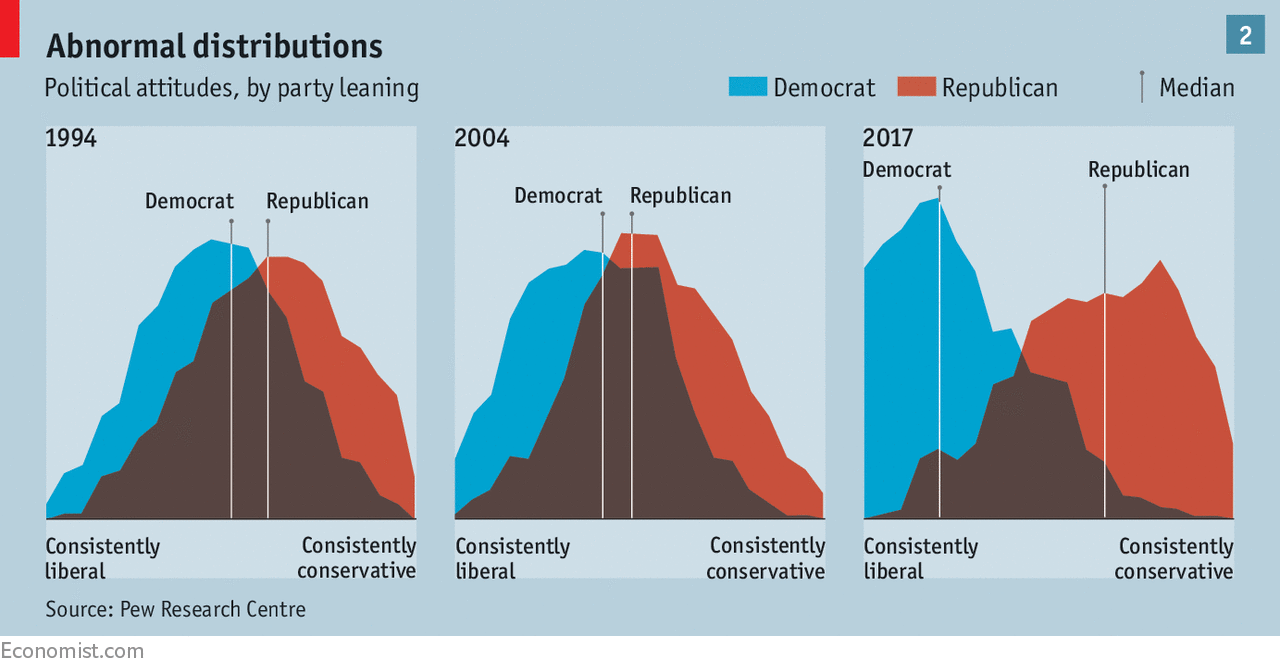And if they do check they don’t believe it.
Here’s one view, but it’s a bad headline.
In Galloway’s eyes, people are going to grow more frustrated with Facebook—this is a theme I’ve personally heard from a lot of people, both in government and in Silicon Valley—and that unless the company takes full responsibility for what happened, and dedicates an extraordinary amount of money and resources to stopping it from happening again, as Johnson & Johnson did with Tylenol in 1982, the repercussions could be devastating. “I think if they continue to deny this, and it happens again, which it will—if they don’t put in a lot of safeguards, I think we’re going to get angrier and angrier, and provide support for cloud cover for increased regulation or fines,” he said. “This is serious. Either it’s this government, or the European government, but this is going to get real.”
There was this episode of Black Mirror, first one in season 3 I think, called Nosedive. It focuses on a somewhat exaggerated near-future where everyone is so obsessed with social media and upvoting/likes that the entire society revolved around your 1-5 star rating. People below a certain level were locked out of their jobs, couldn’t get into some neighborhoods, etc. Everyone went around with their phones (and their corneal implants) rating everyone, all the time.
The point was (obviously) to highlight our obsession with our virtual image and social media’s influence on what and who we support and identify with. What is interesting to me though is that when discussing it with students, my view of the episode was very much at variance with theirs. I found it rather believable; even if somewhat exaggerated, it felt like it could be pretty much like that in not that long a time. My students, though, steeped much more already in social media and phone-as-life, found it too exaggerated, too hyperbolic, “no way that would happen, people aren’t that dumb.”
I’m not sure whether I am more gullible than they are, or they are so immersed in social media that they can’t see where they are headed. Maybe some of both!
C-SPAN video of Franken grilling FB.
Partial transcript from Oliver Willis:
Stretch was evasive and defensive, describing the linkage as simply “signals we missed.”
In response, Franken, growing visibly irritated with Stretch’s responses, reiterated that “People are buying ads on your platform with rubles,” Russia’s national currency.
Yet despite platforms like Google and Facebook being “the most sophisticated things invented by man,” they somehow managed to miss these obvious signs.
FRANKEN: How did Facebook, which prides itself on being able to process billions of data points and instantly transform them into personal connections for its users, somehow not make the connection that electoral ads paid for in rubles were coming from Russia? Those are two data points. American political ads and Russian money, rubles. How could you not connect those two dots?
STRETCH: Senator, you mentioned one aspect of the Russian threat, that was so visible in 2016, which was the question of account compromising, stealing content and disseminating them and that’s a threat our security team was intensely focused on and we think effectively addressed. I think, in hindsight, we should have had a broader lens. There were signals we missed. And we are now –
FRANKEN: OK. People are buying ads on your platform with rubles. They’re political ads. You put billions of data points together all the time. That’s what I hear that these platforms do. They’re the most sophisticated things invented by man. Ever. Google has all knowledge that man has ever developed. You can’t put together rubles with a political ad and go like, “Hmm, those two data points spell out something bad?”
STRETCH: Senator, it’s a signal we should have been alert to and in hindsight, it’s one we missed.
You won’t believe how Al Franken DESTROYS Facebook with this weird trick
Sharelue ain’t all bad, though. Oliver Willis, for example, has been doing good work there.
Feinstein also pushing hard:
https://twitter.com/CaseyNewton/status/925735545866657792
I must say, I don’t think you get it. You’re general counsels, you defend your company. What we’re talking about is a cataclysmic change. What we’re talking about is the beginning of cyber warfare. What we’re talking about is a major foreign power witht he sophistication and ability to involve thselves in a presidential election and sow conflict and discontent all over this country. We are not going to go away, gentlemen. And this is a very big deal. I went home last nigth wtih profound disappointment. I asked specific questions, I got vague answers. And that just won’t do. You have a huge problem on your hands. And the US is going to be the first of the countries to bring it to your attention, and other countries are going to follow I’m sure. Because you bear this responsibility. You created these platforms … and now they’re being misused. And you have to be the ones who do something about it - or we will.
Good for her.
Preach it!
I still think it’s time for her to retire, but that was pretty good.
Not the Matrix, eh?
How shocking…
There are also indications that the election night #Calexit trend - the hashtag was mentioned 100,000 times in the course of a few hours - was artificially driven by automated bots or fake accounts. Several of the most retweeted messages under the hashtag were posted by accounts with just a few hundred followers. And some of those tweets were retweeted thousands of times, an unlikely - though not impossible - occurrence.
In the hours after it became clear that Trump would win the election, one #Calexit tweet by a California teenager was the most retweeted message using the hashtag:
California has the sixth largest economy in the world… We have the ability to secede from the United States and go independent. #CalExit
— Michael Quicho (@QuichoMichael) November 9, 2016Although this tweet was repeated 10,000 times, nearly 2,000 of those accounts have since disappeared from Twitter, indicating that they were potentially automated bots, fake accounts, or otherwise violated the network’s terms and conditions.
The Internet Research Agency and other Russia-based hacker networks have been known to use automated accounts to push social media trends.
Today’s thinkpiece(s)
https://www.theatlantic.com/international/archive/2017/11/germany-facebook/543258/?single_page=true
I need to figure out how to get my parents off of Facebook. My mom, especially, is becoming intolerant Dem. it’s an insidious process.
I think the (latter) 20th century was a bubble, and now we’re returning to the nasty times that preceded it.
Hang on a sec. Social media are a double edged sword. They give voice to the voiceless. Think victims of harassment coming out of the woodwork to create (or start to create) a sea change in attitude. In the old days they would have to go to the print media and hope that the editors don’t fob them off (who can be those very same men they are trying to expose).
We live in exciting time. Everything is new, there are lots of problems but few answers. But there is no going back to the old days. The only thing we can do is to look for new answers.
If Net Neutrality goes away, new Internet protocols may be invented (for “business reasons”) that make it harder for everyone to communicate with everyone, across the globe. I.e. a bunch of walled gardens, like in the old AOL and CompuServe days. At the very least, access to video may become more restricted.


